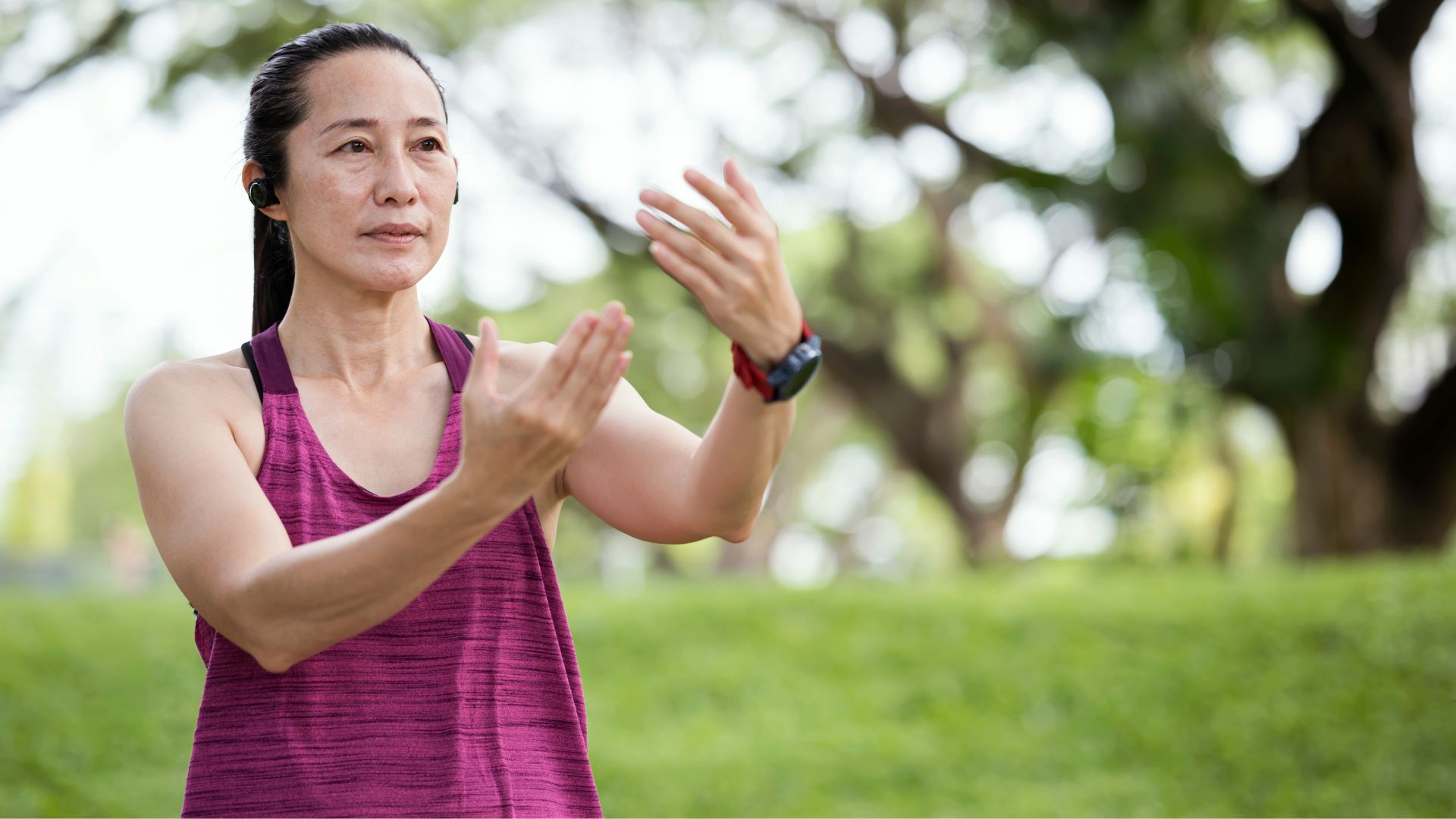These two simple exercises may be better at treating insomnia than medication, new study says
While therapy and medication will be invaluable tools for some, those having trouble sleeping might like to try walking, yoga, and Tai Chi for sleep

Grace Walsh

These exercises had a direct positive impact on sleep efficiency and length, more so than standard sleeping pills, making them a worthwhile activity for those looking to sleep better.
The review, published in the BMJ Evidence Based Medicine, looked at 22 randomised controlled trials involving over 1,300 people with symptoms of insomnia or with clinically diagnosed insomnia. It also looked at 13 strategies used to help people sleep better, including exercise interventions and some non-exercise related treatments like cognitive behavioural therapy (CBT) and massage.
The exercises studied included various types of cardio exercise (with and without CBT), strength training, jogging, walking, yoga, and Tai Chi.
Yoga showed the most success for those who don't get enough sleep, have trouble getting to sleep, and staying asleep. It was linked with a two-hour increase in total sleep time and almost 16% better sleep efficiency, with a 30-minute reduction in sleep onset.
Tai Chi came second. It was linked to a 50-minute increase in total sleep time, an improvement of over half an hour in the time spent awake after falling asleep, and a 25-minute reduction in the time it took to fall asleep. Interestingly, Tai Chi also continued to "exhibit statistically significant differences across all assessed sleep diary outcomes" after two years compared to existing treatments.
As two of the best exercises for longevity, scientists have recognised the benefits of yoga and Tai Chi for generations. However, this is one of the few studies to highlight the positive impact they can have on our sleep over other exercises.
Why is Tai Chi so good for sleep?
Tai Chi is an exercise that focuses on breath control and physical relaxation, which has been shown to decrease activity in the sympathetic nervous system (SNS), says the review's lead authors. This makes us feel calmer.
Sign up to our free daily email for the latest royal and entertainment news, interesting opinion, expert advice on styling and beauty trends, and no-nonsense guides to the health and wellness questions you want answered.
“Its combination of meditative movement and mindfulness may promote emotional regulation, deactivate ‘mental chatter’, and reduce anxiety. It may also help to curb the production of inflammatory chemicals over longer periods," they say.
The team from the Beijing University of Chinese Medicine found that cognitive behavioural therapy (CBT) is also effective at treating insomnia. This is a type of talking therapy that helps change the way people think and act.
How to do Tai Chi at home for beginners
The best way to do Tai Chi at home for beginners is to follow a video, whether that's a live class online or a YouTube demonstration. These can teach basic form and principles, before you progress onto higher levels.
What other exercises are good for sleep?
The review also found that walking and jogging can help you fall asleep, and is particularly helpful for those who are exhausted during the day due to poor sleep.
Researchers found it increased energy expenditure, lowered cortisol levels, improved emotional regulation, boosted melatonin secretion, and increased the amount of deep sleep participants had.
A note on the study
Medication and CBT are still two worthwhile treatment options that may work for some people. If you struggle with insomnia, it's important to discuss all the options with your doctor.
The researchers of the study also acknowledged that 15 (68%) of the trials included in the review had some flaws. In some, there was no measurable way to work out how often participants did these exercises or the intensity they did them at. The sample sizes in other studies were small.
However, it highlights the particular benefits of walking, jogging, yoga and Tai Chi for those who struggle to fall asleep and may not have access to the other options due to medication side effects or the cost and/or waiting list for CBT.
"Given the advantages of exercise modalities such as yoga, Tai Chi, and walking or jogging -- including low cost, minimal side effects, and high accessibility -- these interventions are well-suited for integration into primary care and community health programs," the researchers say.

Kat Storr has been a digital journalist for over 15 years after starting her career at Sky News, where she covered everything from world events to royal babies and celebrity deaths. After going freelance eight years ago, she now focuses on women's health and fitness content, writing across a range of UK publications.
From perimenopause to the latest fitness trends, Kat loves researching and writing about it all. She's happy to give any fitness challenge a go and speaks to experts about wellbeing issues affecting people every day.
- Grace WalshHealth Channel Editor
You must confirm your public display name before commenting
Please logout and then login again, you will then be prompted to enter your display name.
